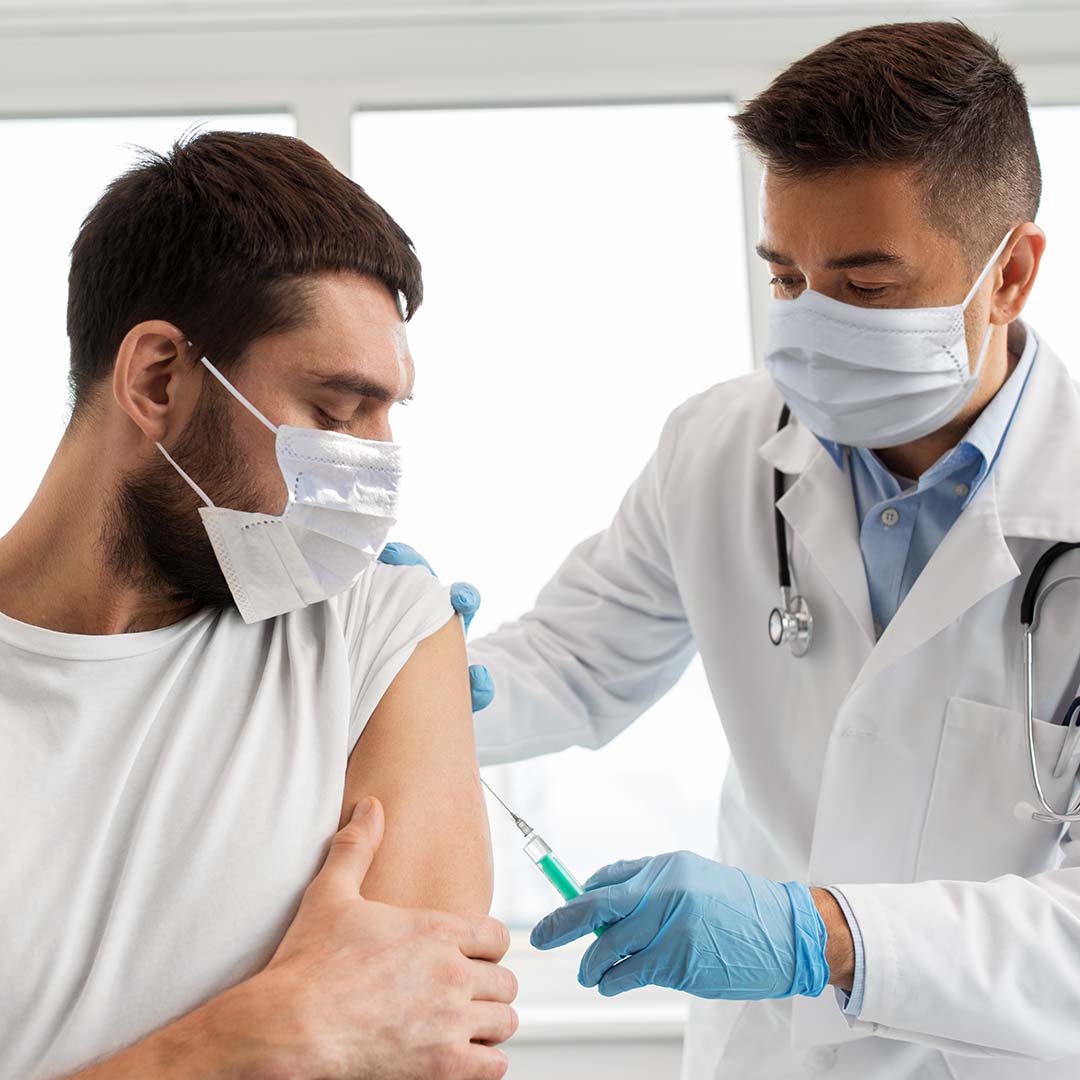Path to Wellness Integrated Health: Allergy Treatment and Testing
Navigating the world of allergies can be confusing and, quite honestly, a bit scary. But here at Path to Wellness Integrated Health, we see allergies differently. We see an opportunity to understand your body better, to work in harmony with it, and to find long-term relief. Rather than just masking the problem with allergy medications, we delve deep to truly address and rectify the issue.

The Power of Immunotherapy
Have you ever heard of immunotherapy? For many, this might sound foreign, but the beauty of it is profound. Rather than merely treating the symptoms, allergy immunotherapy addresses the very cause of allergies. Think of it as personal training for your immune system, gradually teaching it to be at peace with allergens it previously overreacted to.
So, what does this mean for you?
- Enhanced Quality of Life: Say goodbye to constant sneezing, itching, and discomfort.
- Cost Savings: With fewer symptoms, you might find a reduced need for symptomatic drugs.
- Embrace the Outdoors: Enjoy blooming flowers and brisk outdoor air without the dread.
- Pet Love: Get cozy with pets without the sneezy aftermath.
*Clinical studies vouch for the efficacy of immunotherapy. A large number of patients have seen significant improvements in their allergies, which last even years after completing the treatment.
The Two Phases: Build-Up and Maintenance
Starting with a mild dose, we gradually build up to the maximum concentration your body can tolerate. Once this is achieved, you transition into the maintenance phase. This entire process is systematic, patient-oriented, and above all, safe.
Types of Immunotherapy
Depending on your comfort and specific requirements, we offer custom allergy injections and treatments. With injections, you would initially visit us 1-2 times a week, transitioning to once every 4-6 weeks after reaching the maintenance phase.

When to Expect Results?
Patience is the key. While many notice significant relief within 3-6 months, remember that every individual’s journey is unique. Some even experience the joy of newfound resistance to other allergies and possibly a decreased risk of developing asthma.
Side Effects: A Transparent Outlook
Though immunotherapy has revolutionized allergy treatment, it’s crucial to be aware of potential side effects. Minor reactions like discomfort at the injection site or slight itching are common. However, always keep us informed of any reactions, no matter how minor. In rare instances, more severe reactions may occur, necessitating immediate attention. We prioritize your safety, ensuring you’re well-informed and equipped for every scenario.
Cost Concerns? Leave Them to Us
One of the primary worries for many is the financial aspect. Breathe easy knowing that most insurance plans usually cover allergy treatments. Your health is an invaluable investment, and we’re here to ensure it’s accessible.
Your Journey to an Allergy-Free Life Starts Here
Path to Wellness Integrated Health isn’t just a healthcare facility. We’re your allies, your partners, and your champions in this journey to a life free from the confines of allergies. We combine advanced techniques, compassionate care, and a deep understanding of your unique needs to bring you a life of comfort and vitality.
Join us. Let’s redefine your relationship with allergies, together.
FREQUENTLY ASKED QUESTIONS:
WHY IMMUNOTHERAPY?
Among the wide variety of treatment possibilities available today, allergy immunotherapy is the only treatment that targets the cause of allergies and alters the natural course of the disease1, which for many patients may lead to:
- An improved quality of life
- An end to discomfort and feeling ill
- Lower costs of symptomatic drugs
- Freedom to enjoy outdoor activities during allergy season
- Fewer problems having pets at home or visiting family or friends with pets.
Clinical studies have shown that a majority of patients respond well to immunotherapy. Specifically, their allergies improve and are maintained years after completing treatment.2
WHAT IS IMMUNOTHERAPY?
Allergies are caused by your immune system overreacting towards harmless substances the same way it would react towards something harmful like bacteria or a virus. Allergy immunotherapy slowly “trains” your immune system so you can tolerate these harmless substances upon exposure. Allergy immunotherapy is a clinically documented treatment method that may reduce or completely remove your allergy symptoms. As such, your need for traditional, symptom-relieving medication should decrease as well. This kind of treatment has been in use worldwide for many decades and clinical studies have shown that it is both safe and effective.2
WHAT GOES INTO MY IMMUNOTHERAPY MEDICATION?
Your medical provider will review your skin or blood test results and determine which allergy triggers should be selected for immunotherapy. The most commonly treated allergens include house dust mites, pollens (from grasses, trees, and weeds), dander from pets and other animals, and molds. The products mixed for your allergy immunotherapy are called allergenic extracts. These are natural, purified preparations made from the actual allergen source and are approved for clinical treatment. Innovation Compounding will be responsible for mixing a treatment formulation that is matched to your allergy test results.
HOW DOES IMMUNOTHERAPY WORK?
Immunotherapy occurs in two distinct phases: build-up and maintenance. The build-up process begins with the administration of a weak concentration of an allergen extract. Your immunotherapy dose will become increasingly stronger until you reach the maximum dose. This phase can be as short as 1-7 days or several months (shots) but can also vary based on your sensitivity to the allergens and your specific treatment plan.
Once you have reached your maximum dose, you enter the “maintenance” phase of treatment. Immunotherapy is recommended for 3 – 5 years2. However, the length of treatment is determined by your degree of symptom relief and your physician’s recommendation.
HOW IS IMMUNOTHERAPY GIVEN?
Your provider will work with you to develop a treatment plan. This plan will determine the frequency of your visits.
For allergy shot patients, immunotherapy will begin with 1-2 visits per week until reaching the maintenance phase. After reaching maintenance, shot appointments will be less frequent occurring once every 4-6 weeks. Following every injection, you will be asked to wait for 30 minutes in your doctor’s office to be observed for an allergic reaction.
WHEN WILL I BEGIN TO FEEL BETTER?
Many patients begin to see results as early as 3 – 6 months or shortly after reaching maintenance. Your need for antihistamine drugs may decrease and your symptoms may become less severe. Some studies have even shown that allergy shots may prevent the onset of other allergies and the development of asthma. Also, the treatment has a long-standing effect after it is discontinued. The most recent findings show that the benefits of allergy immunotherapy are maintained years after completing treatment. For some people, symptom relief may persist indefinitely.2 The key to success is BE PATIENT and CONTINUE TREATMENT. Your chances of seeing improvements in your allergy symptoms drastically increase the closer you follow your physician’s treatment plan.
WHAT ARE THE POSSIBLE SIDE EFFECTS?
Although immunotherapy has been shown to be highly effective in treating the underlying cause of allergies, patients being treated may have side effects. Mild, local reactions are fairly common for all forms of immunotherapy. Specifically:
Injections, you may experience minor discomfort from the injection, and some swelling at the injection site can be persistent, but the nursing staff will have topical treatments to relieve any irritation or pain following a shot.
Any reaction, no matter how minor, should be described to your physician so it can be documented appropriately. Some patients experience systemic reactions following immunotherapy. These types of reactions will involve symptoms that occur in a part of your body different from where the dose was given. This often resembles the type of allergy reaction that you experience when you encounter the actual allergy trigger. Common systemic responses include sneezing, redness and itching, or hives. These types of reactions are rare, but can lead to more severe symptoms that need to be treated immediately. It is important to always inform your treatment staff if they ever occur. Some systemic reactions can progress rapidly to anaphylaxis and urgent care may be required. Your treatment team may request that you obtain, and be trained on the use of an auto-injectable epinephrine device.
Sources: 1. Bousquet J, Lockey RF and Malling HJ. WHO Position Paper. Allergen immunotherapy: therapeutic vaccines for allergic diseases. Allergy 1998; 53 (Suppl 44): 1-42. 2. Cox, L, et al. Allergen immunotherapy: a practice parameter third update. J Allergy Clin Immunol. 2011 Mar;127(3):840. 3. Canonica, W, et al. Sublingual Immunotherapy WAO Position Paper 2013 Update. World Allergy Organization Journal 2014, 7:6.
